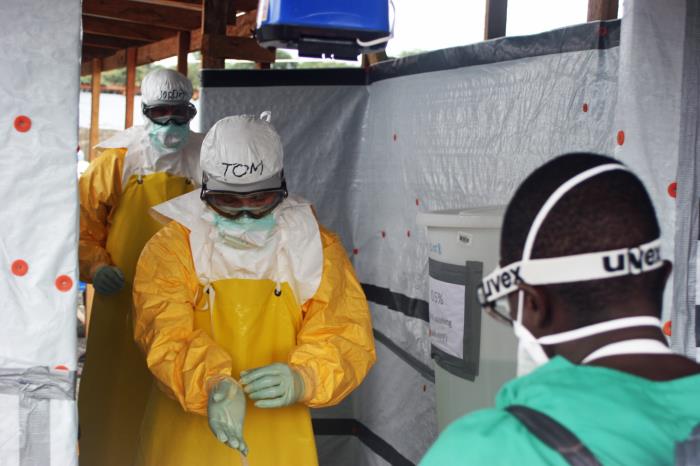Ebola Outbreak Declared Over in West Africa

Get the world’s most fascinating discoveries delivered straight to your inbox.
You are now subscribed
Your newsletter sign-up was successful
Want to add more newsletters?

Delivered Daily
Daily Newsletter
Sign up for the latest discoveries, groundbreaking research and fascinating breakthroughs that impact you and the wider world direct to your inbox.

Once a week
Life's Little Mysteries
Feed your curiosity with an exclusive mystery every week, solved with science and delivered direct to your inbox before it's seen anywhere else.

Once a week
How It Works
Sign up to our free science & technology newsletter for your weekly fix of fascinating articles, quick quizzes, amazing images, and more

Delivered daily
Space.com Newsletter
Breaking space news, the latest updates on rocket launches, skywatching events and more!

Once a month
Watch This Space
Sign up to our monthly entertainment newsletter to keep up with all our coverage of the latest sci-fi and space movies, tv shows, games and books.

Once a week
Night Sky This Week
Discover this week's must-see night sky events, moon phases, and stunning astrophotos. Sign up for our skywatching newsletter and explore the universe with us!
Join the club
Get full access to premium articles, exclusive features and a growing list of member rewards.
West Africa is now free of Ebola, marking an end to the devastating epidemic that plagued the region for two years.
The three hardest-hit countries — Guinea, Liberia and Sierra Leone — have not had any new Ebola cases for at least 42 days, according to a statement from the World Health Organization released today (Jan. 14). Health officials typically wait 42 days to declare a country Ebola-free, because this is twice as long as the 21-day incubation period of the virus (the time it takes for a person infected with the virus to show symptoms).
Liberia was the most recent of the three countries to be declared Ebola-free — today marks 42 days since the last person to have Ebola there was cured of the disease, according to WHO. Liberia was previously declared Ebola-free twice during 2015, but each time the country subsequently experienced small "flare-ups" of the disease. Sierra Leone's Ebola outbreak was declared over in early November 2015, and Guinea was declared free of Ebola in late December.
However, officials warn that new cases of Ebola could still appear in the region, and that efforts are needed to prevent and respond to any new outbreaks. [10 Deadly Diseases That Hopped Across Species]
All three countries are at a high risk of having small Ebola outbreaks, like the ones in Liberia in 2015, WHO officials say. That's because, in rare cases, the virus can be transmitted from survivors through sexual activity. Although the virus disappears from most of the body after a person is cured, it can remain in the semen of male survivors for as long as a year, according to WHO.
"The risk of re-introduction of infection is diminishing as the virus gradually clears from the survivor population, but we still anticipate more flare-ups and must be prepared for them," Dr. Bruce Aylward, WHO's Special Representative for the Ebola Response, said in the statement. "A massive effort is underway to ensure robust prevention, surveillance and response capacity across all three countries by the end of March," Aylward said.
In total, more than 28,500 people in West Africa were infected with Ebola during the outbreak, which began in a small village in Guinea in December 2013. More than 11,300 people died from the disease.
Get the world’s most fascinating discoveries delivered straight to your inbox.
Follow Rachael Rettner @RachaelRettner. Follow Live Science @livescience, Facebook & Google+. Original article on Live Science.

Rachael is a Live Science contributor, and was a former channel editor and senior writer for Live Science between 2010 and 2022. She has a master's degree in journalism from New York University's Science, Health and Environmental Reporting Program. She also holds a B.S. in molecular biology and an M.S. in biology from the University of California, San Diego. Her work has appeared in Scienceline, The Washington Post and Scientific American.
 Live Science Plus
Live Science Plus





